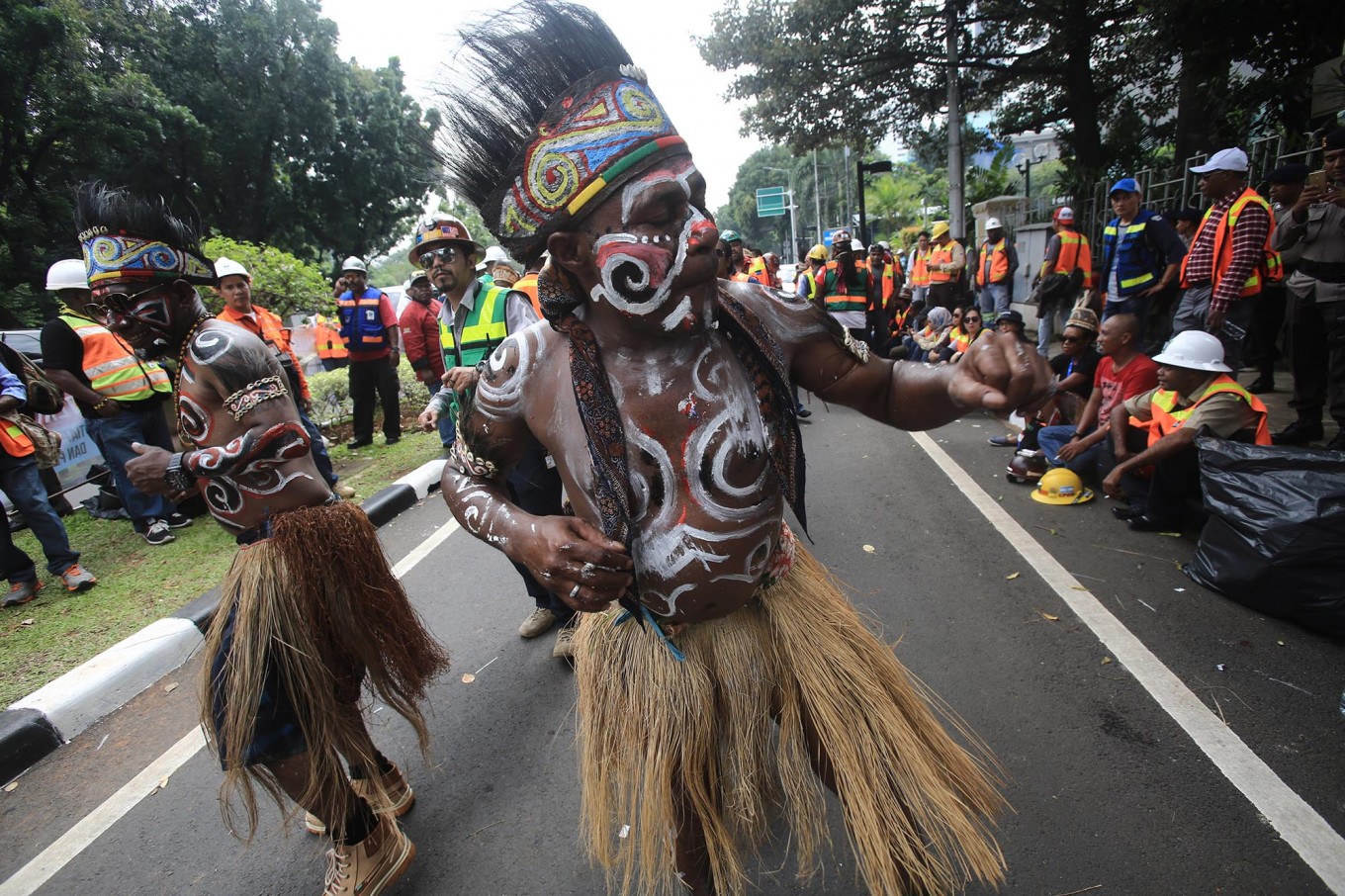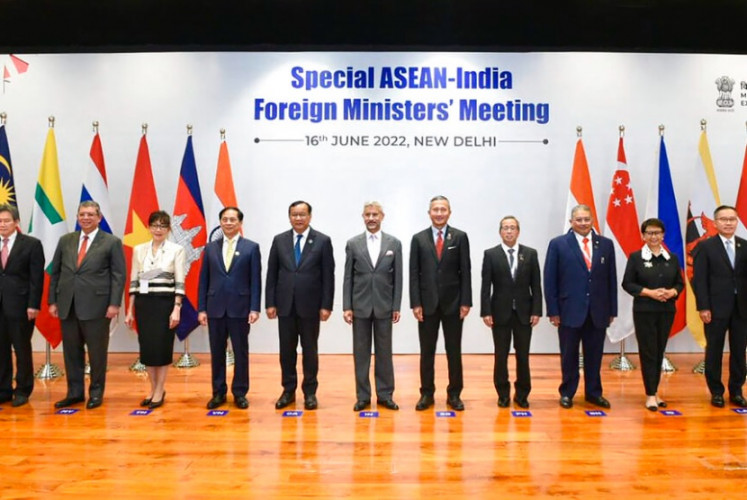Commentary: Freeport divestment, capital flight and collateral damage
No previous president has been able to discipline Freeport Indonesia under Indonesian laws.
Change Size
 Dozens of people claiming themselves as workers of gold and copper miner PT Freeport Indonesia hold a rally in front of the Energy and Mineral Resources Ministry in Jakarta on March 7, 2017, urging the government to immediately resolve its dispute with the company. (JP/Dhoni Setiawan)
Dozens of people claiming themselves as workers of gold and copper miner PT Freeport Indonesia hold a rally in front of the Energy and Mineral Resources Ministry in Jakarta on March 7, 2017, urging the government to immediately resolve its dispute with the company. (JP/Dhoni Setiawan)
F
or the umpteenth time the government announced last week it would soon close the deal to acquire the controlling ownership of PT Freeport Indonesia (FI), which has owned and operated the world’s largest gold and copper mine in the easternmost province of Papua since 1972.
Many times, the government has renewed FI’s license to export copper concentrate even though the 2009 Mining Law has banned the export of unrefined minerals since 2014. The latest renewal was in February 2018
Acquiring the majority ownership of FI, the subsidiary of American mining giant Freeport-McMoran, would indeed generate big political gains for President Joko “Jokowi” Widodo ahead of the presidential election in April 2019. No previous president has been able to discipline FI under Indonesian laws.
FI has been able to dodge for more than seven years the government regulation that requires the American company to cede its controlling ownership of the mine to Indonesian interests.
The divestment agreement would also bring to an end to decades of rising public anger over the American control of the country’s largest mining venture, which has been looked on with suspicion and perceived to be a symbol of American economic imperialism in Indonesia.
But there is an immediate loss as well: the capital flight of US$4 billion, the estimated sum the government or state-owned Inalum Holding Company will have to pay for the share acquisition at a time when Bank Indonesia’s foreign reserves have been eroded steadily in defending the rupiah from further weakening against the United States dollar.
During the first semester, the rupiah depreciated by 5 percent. Last month alone, the central bank had to take $3.1 billion from its international reserves to prevent the rupiah from falling steeply, thereby decreasing its foreign exchange reserves to $120 billion.
Many foreign analysts have also warned that the compulsory divestment would cause collateral damage as it would strengthen the public perception that Indonesia can now afford to stay the nationalistic path in the natural resource sector.
This is quite a sensitive topic, as the upcoming campaigns for the legislative and presidential elections in April 2019 could again raise the ugly head of inordinate nationalist sentiments.
This may scare off new investors in the mining industry.
But given FI’s notorious reputation with all the preferential treatment and generous mining concessions it has enjoyed over the past 45 years, several analysts have also opined that it is the right time for Indonesia to discipline FI.
The government has been facing extraordinary pressure from the people and national media to be firm with FI. This is driven by a perception that the company has consistently taken advantage of the Indonesian government since it entered the country in 1967 as its largest foreign investor.
Hence, FI has been seen as a special case. Jokowi’s determination to acquire the controlling ownership of FI cannot be considered a “conventional” breach of the sanctity of a contract but the revision of a contract that was made in bad faith by a foreign giant mining group exploiting the weakness of Indonesia’s government.
We should give the benefit of the doubt to Inalum as to whether FI will run better and generate more benefits for the Indonesian people or not, despite the notorious reputation of many state companies as cash cows for politicians and senior officials.
Certainly the primary challenge during the remaining 23 years of FI’s operation until 2041 (including a 20-year extension under the Special Mining License) is to secure financing for the estimated $20 billion in additional investment needed and the billions of dollars more in annual working capital as the mining operations will soon go underground.
Technically wise, we are confident FI’s operations will continue to be fairly smooth because Freeport-McMoran will remain as the operator and manager, which will simply execute whatever business plan is given by the government (Inalum) as the controlling owner.
The question though is the source of financing for investment and operational funds because the bulk of the money is supposed to be fulfilled with loans, while the lending capacity of local banks is severely limited. At issue now is how high the credit rating of FI is under the government’s controlling ownership.
Another task is to ensure that the smelter, one of the three key conditions for the extension of Freeport’s Special Mining License, is completed within the next five years. The 2009 Mining Law prohibits the export of unprocessed minerals. The ban should have been enforced in 2014, but it has since been postponed because most mining companies have yet to build their smelters.
The construction of the smelter has become even more imperative because of the lingering suspicions that Freeport-McMoran has not been fully transparent and honest with the gold concentration it extracted from the copper mine because the refining has from the outset been done overseas.
Another factor is the local administration. The government made the right decision to allocate 20 percent of the central government’s equity holding to the Papua provincial and regency administrations. But controlling ownership will not automatically mean direct benefits to the local people, especially because many state companies have yet to build good corporate governance. Papua has long been Indonesia’s least developed and most restive province, with intermittent waves of security disturbances.









